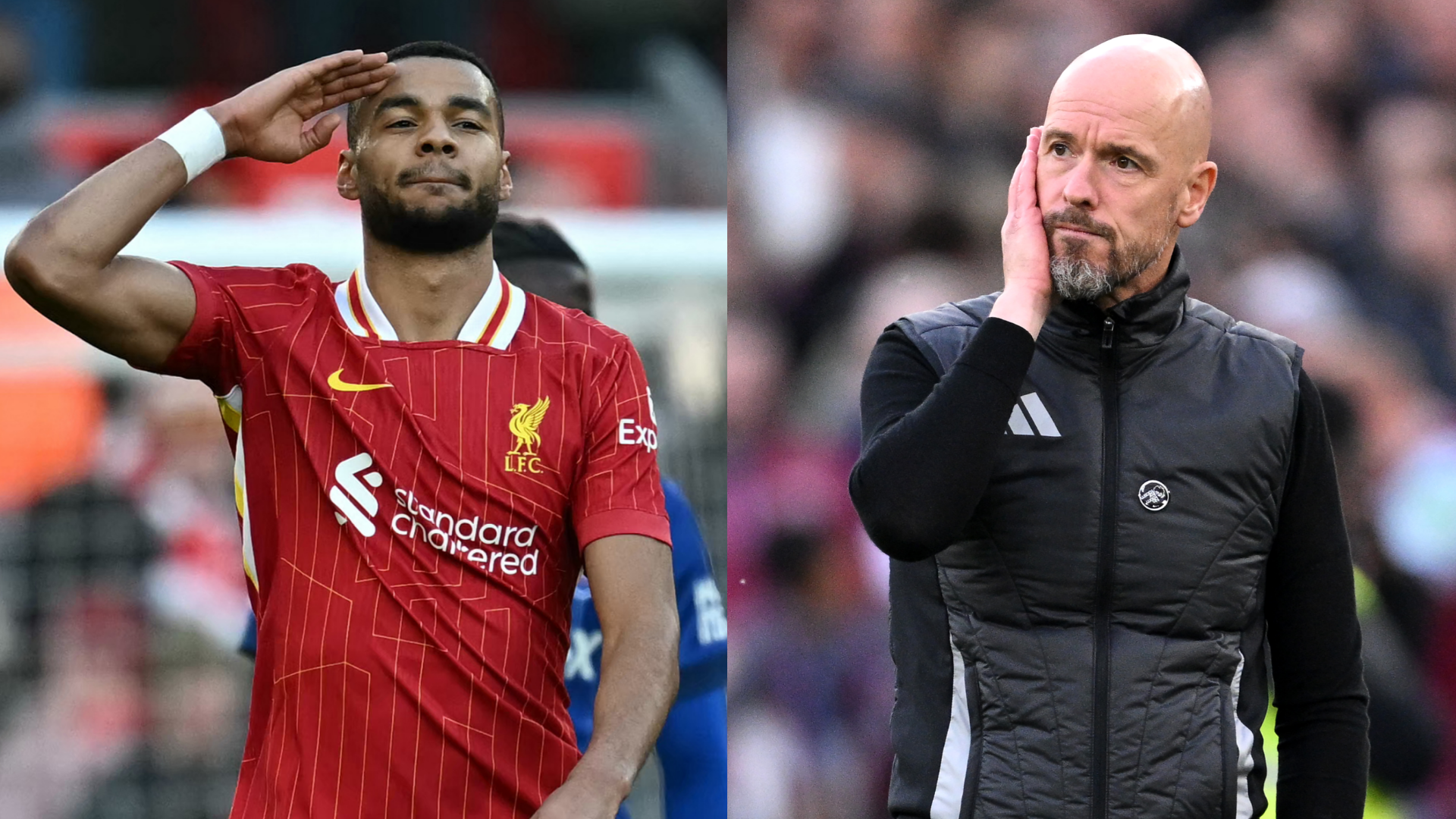Manchester United transfer policy under fire after Gakpo slip
Manchester United transfer policy was thrust back into the spotlight this week after former first-team coach Benni McCarthy revealed how the club’s scouting department dismissed Cody Gakpo despite a ringing endorsement from Erik ten Hag. The episode, which ended with the Dutch forward joining arch-rivals Liverpool, is the latest flashpoint in a recruitment strategy many supporters already view as confused and reactive.
Manchester United transfer policy questioned again
According to McCarthy, Ten Hag placed Gakpo near the top of his first shortlist after taking the Old Trafford job in 2022. The manager felt the PSV Eindhoven star possessed the pace, versatility and directness United lacked on the flanks. However, when the request was pushed up the chain, scouts allegedly replied that they “didn’t rate” the Netherlands international highly enough for the fees involved. Within months, Liverpool swooped with a £37 million offer, leaving United empty-handed while their Premier League rivals celebrated a bargain.
Ten Hag’s plea ignored
Ten Hag is no stranger to clashing with the club hierarchy. He had already lobbied hard for Antony—another Eredivisie alumnus—only to see negotiations drag into deadline day at an inflated cost. Sources close to Carrington say the manager believed Gakpo could be secured quickly and cheaply if United acted early in the summer window. Frustrated by slow decision-making, he told confidants the episode typified a Manchester United transfer policy that too often places committees above clear football logic.
Inside the scouting verdict
McCarthy’s comments lift the lid on a process many insiders describe as fragmented. While Ten Hag and his coaching staff compile detailed dossiers, separate groups within the recruitment department crunch data and deliver red-flag reports if a target’s metrics, age profile or projected resale value do not meet strict criteria. In Gakpo’s case, concerns about his ability to replicate Eredivisie numbers in England apparently overshadowed the manager’s first-hand knowledge of the player’s temperament and tactical fit.
What McCarthy said
Speaking on South African radio, McCarthy pulled no punches: “We had Cody in our sights. Erik wanted him, I wanted him. But the scouts said he’s not worth the price. Now look—he’s starting for Liverpool and we’re still searching for goals.” His remarks echo earlier criticisms from former captain Gary Neville, who warned that Manchester United transfer policy is riddled with “paralysis by analysis.”
Gakpo’s impact at Liverpool
Since arriving at Anfield in January 2023, Gakpo has settled swiftly under Jürgen Klopp. He scored in his first Merseyside derby, added crucial strikes in Europe, and demonstrated tactical flexibility by operating across the front line. While his statistics are solid rather than spectacular, Liverpool staff praise his work rate and learning curve. Each positive performance inevitably rekindles debate about why United failed to meet PSV’s valuation when the opportunity was ripe.
Continuing pattern of misses
The Gakpo saga is not an isolated misstep. Over the past decade, Manchester United transfer policy has seen marquee names chased all summer, only to sign elsewhere for less. Erling Haaland, Jude Bellingham and Moisés Caicedo are just three examples. Analysts argue that the club’s changing executive structure, from Ed Woodward to John Murtough and the incoming influence of INEOS, has created a revolving set of priorities that undermine coherent squad building.
Can Manchester United transfer policy change?
The imminent minority takeover by Sir Jim Ratcliffe’s INEOS group promises to overhaul football operations. Reports suggest a new sporting director will streamline scouting, analytics and coaching demands into one agile pathway. Ten Hag, for his part, is pushing for earlier sign-off on targets and greater trust in his judgement. Supporters hope those changes prevent repeats of the Gakpo fiasco, especially with vital positions—centre-forward and central midfield—still requiring upgrades.
Financial repercussions
Missing out on value signings has tangible costs. United’s net spend remains among Europe’s highest, yet the starting XI continues to lack balance. In contrast, Liverpool’s acquisition of Gakpo looks ever smarter when set against the £86 million outlay United eventually made on Antony. Should the Dutchman thrive on Merseyside while Antony struggles for consistency, the financial gulf could become symbolic of the contrasting philosophies between the two North-West giants.
Player perspective
Gakpo himself has been diplomatic, stating he “respected United’s interest” but felt Liverpool’s project suited him better. Nonetheless, sources close to the forward confirm he was excited by the prospect of working under Ten Hag, a compatriot he admired during Ajax’s Champions League run. That admiration, though, was not enough to compensate for delays within Old Trafford boardrooms.
Lessons from rivals
Manchester City’s recruitment model—short lines of communication between Pep Guardiola, Txiki Begiristain and the data team—offers a blueprint United could emulate. Likewise, Arsenal’s rapid pursuit of Gabriel Jesus and Declan Rice shows that decisive early moves preserve both money and momentum. Until similar clarity emerges, critics fear Manchester United transfer policy will continue to lag behind their title-chasing rivals.
Opinion
The ongoing Cody Gakpo debate is a microcosm of wider structural flaws at Old Trafford. Trust between management and scouting must be rebuilt, and decisive authority bestowed on a clear figurehead. Manchester United transfer policy cannot afford another high-profile miss, especially with Champions League football and commercial prestige on the line. If INEOS truly intends to restore the club to former glories, marrying Ten Hag’s tactical vision with a modern, unified recruitment approach should be priority number one.
Your global gateway to nonstop football coverage:
Goal Sports News
Share this content:
